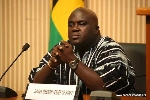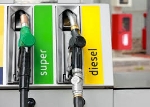Energy expert warns new electricity tariffs could fuel unemployment
 Benjamin Nsiah
Benjamin Nsiah
The Executive Director of the Centre for Environmental Management and Sustainable Energy, Benjamin Nsiah, has cautioned that Ghana’s recent electricity tariff hike could have far-reaching negative consequences for the economy, particularly for industry and employment.
His warning comes in response to the Public Utilities Regulatory Commission’s (PURC) latest tariff adjustment, which will see electricity prices increase by an average of 14.75% starting May 3, 2025.
The PURC attributed the increase to the depreciation of the cedi, rising inflation, higher fuel costs—especially natural gas—and the current energy generation mix.
Mr Nsiah argued that the rationale behind the increase fails to consider its broader economic implications.
“In my view, inflation is already captured within the depreciation of the currency, so factoring it again into end-user tariffs results in double costing—and that double costing will hurt our economy significantly,” he said.
Mr Nsiah explained that higher electricity tariffs lead to increased production costs for businesses, which then drive up the Producer Price Index (PPI) and subsequently the Consumer Price Index (CPI).
He warned that this chain reaction often prompts the Bank of Ghana to implement monetary tightening measures—raising interest rates—which ultimately makes credit more expensive for industries already operating under tight margins.
“When electricity tariffs go up, the cost of production rises.
This drives the PPI up, which then affects the CPI. When the CPI increases, inflation rises, and the Bank of Ghana responds by tightening monetary policy.
That cycle ends up choking businesses,” he explained.
He noted that local industries are already grappling with high operating costs and warned that repeated upward tariff reviews without careful consideration could threaten their survival.
“Increasing the policy rate makes borrowing costly for industries. This cycle of tariff adjustments traps the economy in a loop of rising costs and shrinking productivity,” Nsiah stated.
He called on policymakers to critically assess the timing and necessity of electricity tariff reviews, warning that unchecked increases could make local industries less competitive and result in job losses.
“If we keep pushing tariffs upward without a long-term strategy, our industries will suffer, and many may resort to staff cuts or layoffs. This could ultimately increase unemployment and slow economic growth,” he added.
He spoke on Channel One’s Newsroom on Friday, April 18.
Source: Classfmonline.com/Cecil Mensah
Trending Business

Ghana, IMF reach staff-level agreement on new economic package
12:43
KGL Technology defends record amid calls to review NLA contracts
08:34
Gold Fields ordered to cease operations at Damang mine after lease extension rejected
05:32
Kwahu Business Forum aims to position Ghana’s private sector as regional export leader
05:00
All PMMC licenses for buying gold expire on April 30 -GoldBod announces
14:24
Minority demands immediate increase in Cocoa producer price
12:01
President rolls out new support measures for small businesses- Chief of Staff
11:51
Ghana moves up to 12th on list of African countries with lowest fuel prices
02:23
Do genuine business with gov’t institutions so they grow, not die – Seidu Agongo
22:38
Mahama unveils ‘Feed Ghana Programme’ to transform agriculture and boost economic resilience
12:33




